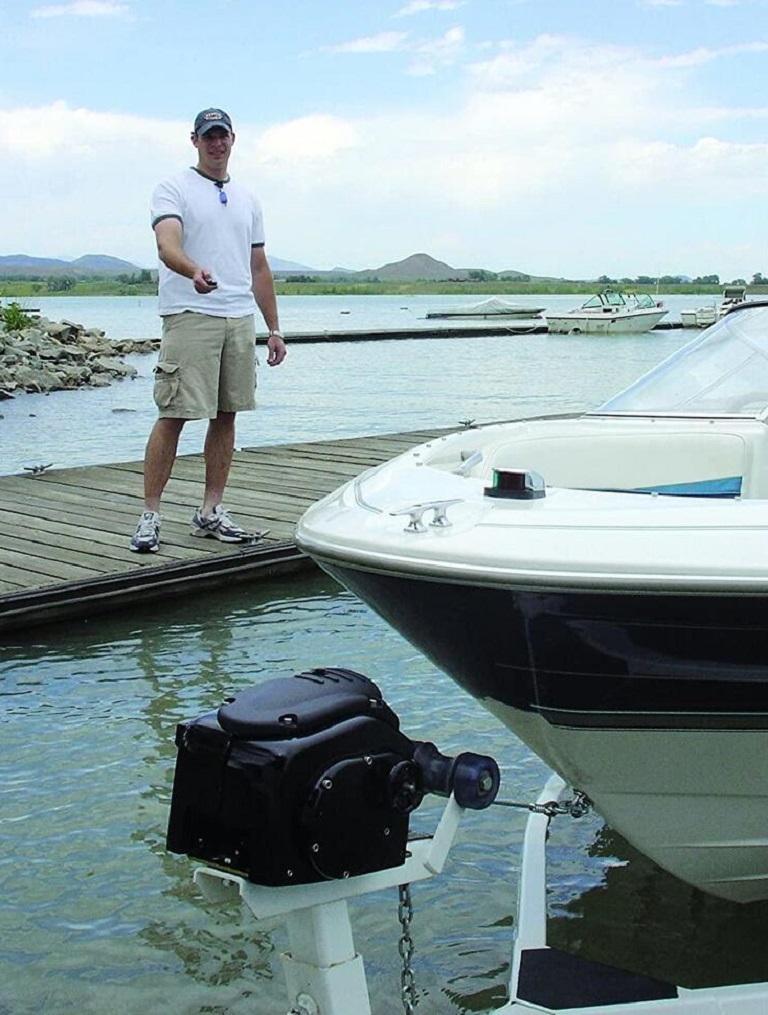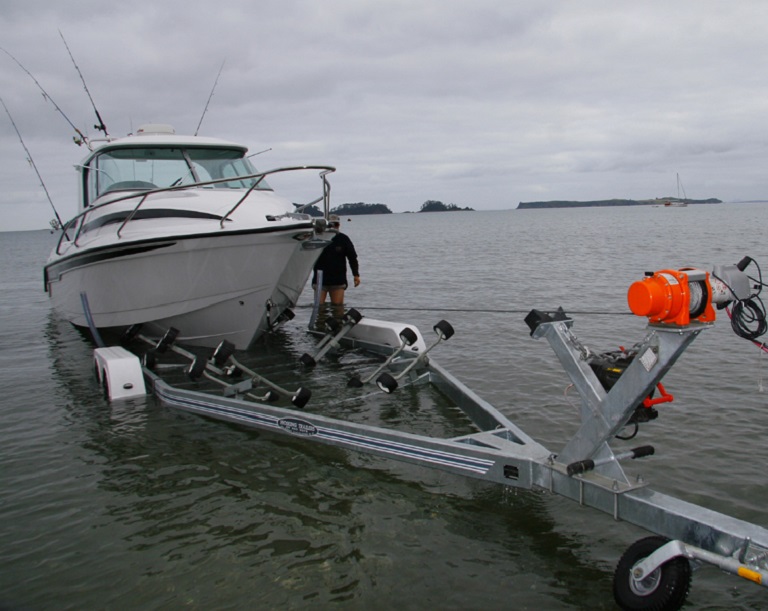Contents
A trailerable boat is a dream for many boating enthusiasts. If you can load your boat on a trailer, you can take it anywhere you want. This freedom of choosing where to go out on the water often beats the luxury of owning a bigger, non-trailerable boat.
However, travelling with your boat on a trailer isn’t a walk in the park. The process is entirely different from driving with a regular trailer. Besides making sure that your car has the towing capacity to carry around a trailer and a boat, you need to attach the vessel securely.
When it comes to loading your boat on a trailer, there are two ways you can go about it. You can try power loading which involves using the boat motor to load and unload the boat on the trailer. Although, this practice is prohibited in most docking areas. On the other hand, a much better way is to let an electric boat trailer winch do the loading for you.
What Is an Electric Boat Winch?

As you already know, a winch is a type of mechanism that allows you to reel in, let out or control the tension of a rope, wire or cable. That said, a trailer winch used for boats has cables that make loading and unloading the vessel easier and smoother.
This piece also helps prevent accidents during loading and unloading. Many beginner sailors dread getting the boat off and onto the trailer without causing damage to their boat or car, and a good winch helps make this task easier and hassle-free.
There are two types of winches: manual and electric. The manual type uses the hand-crank method which involves cranking a handle to pull the line. On the other hand, instead of using muscle power to load, the boat winch electric type has a 12-volt battery motor that does this for you.
Why Is It Better Than a Manual One?
If you go shopping for a boat winch electric models cost more than the manual ones. That said, the benefits of an electric winch must make it worth the additional cost. Some of the reasons it’s worth investing in an electric winch include:
- Boat size – Larger boats can’t be manually winched;
- Sailor’s strength – You may be physically unable to manually winch the boat;
- Speed – You’ll spend less time loading and unloading;
- Safety – There’s a lower risk of accidents with electric winching.
What to Consider When Choosing an Electric Boat Winch

It’s important to note that not just any electric winch can do. You need to ensure it’s suitable for your boat. To make the right pick, consider the following factors.
Weight of the Vessel
Check whether the model you want to buy is rated for the weight of your vessel. For instance, some models have the ability to withstand boats weighing 1800 – 5000 kilos. To increase the pulling capacity, you can also choose a model with a double-cable pulley-block assembly.
Cable vs. Web Strap
Some models feature high-strength web straps, while others come with stainless-steel cable. Both operate the same and offer the same durability and strength, so it comes down to personal preference. If you can decide, there are also models that offer both.
Remote Operation
Like everything else, boat winches can also be remotely operated. For instance, some Powerwinch and Fulton models come with wireless key fob remote controls. This way, you can stand further away from the cable and strap if you’re worried that they may break under pressure and hurt you.
Illumination
Navigation lights are incredibly important for your safety when boating. And so is extra visibility when launching and loading a boat, especially if you have to do so after dark. Some Powerwinch and Fulton models are enhanced with aft-facing LED lights that make it easier to see the boat and trailer at night or before morning, as well as the strap or cable.
Maintenance Advice
Your winch may be rated for exposure to saltwater, but still, it’s important to hose down your trailer and winch with fresh water after every trip. It doesn’t take much time and is beneficial for the longevity of your winch.
It’s necessary to clean and check your electric winch at least once a year. Take off the cover and lubricate the gears, but make sure not to spread grease on the clutch lining. If the cable is worn or frayed anywhere along the length, then it’s time to purchase a new one.
When buying a new cable, always choose the same cable type. This way you’ll ensure the winch rating and cable strength are matched for safety and performance. Always follow the manufacturer’s instructions when replacing the cable and wear leather gloves.
And remember to never rely on your winch to hold the boat on the trailer while travelling. Instead, use dedicated boat tie-downs to make sure your boat and trailer stay connected the entire time.

